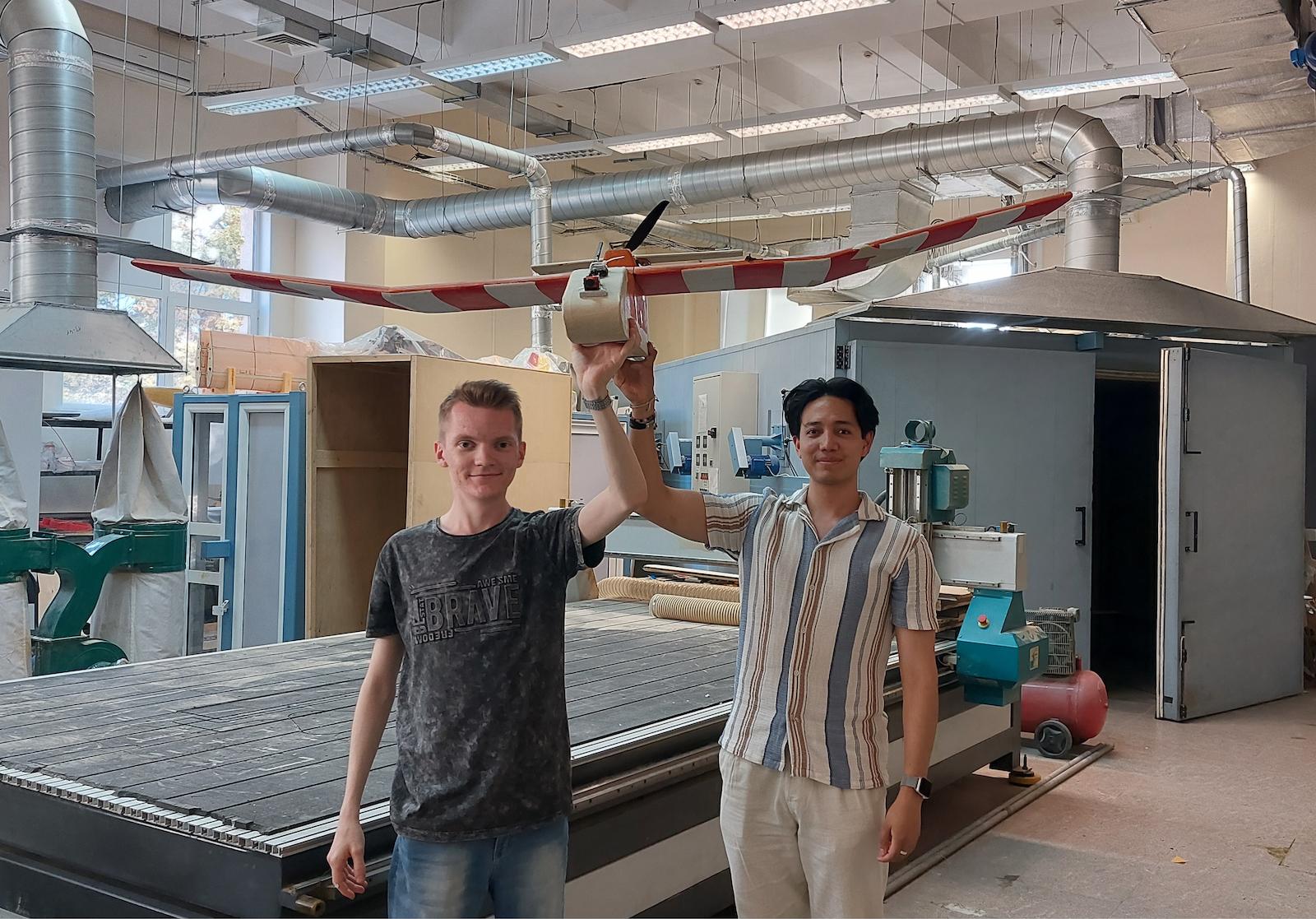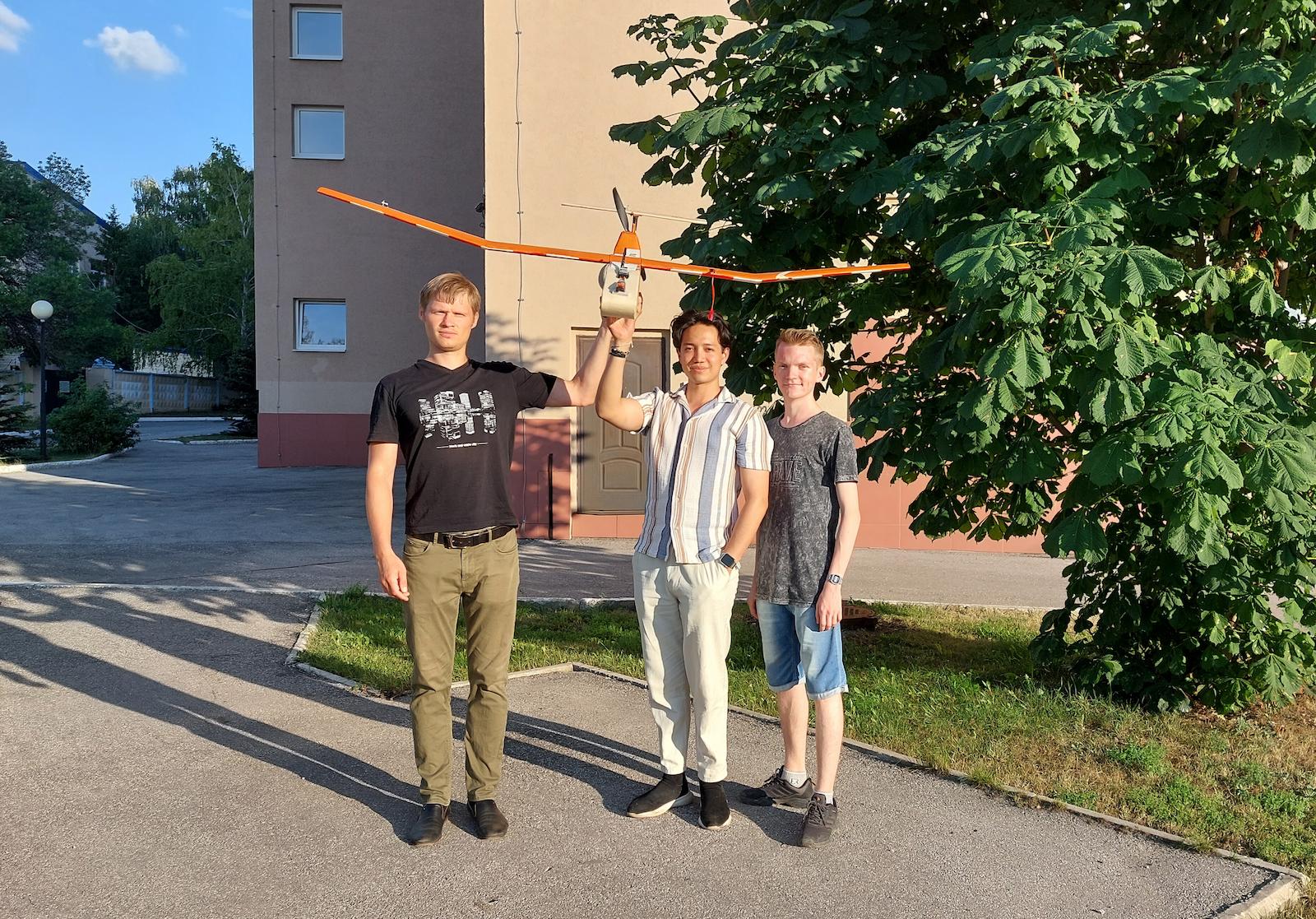A team of students "The Masters" from the Institute of Aerospace Engineering (the IAE) has reached the final of the All-Russian Student Competition of Aviation Creativity for the creation of an unmanned aerial vehicle – SCAC. Of the hundreds of candidates for the final, which will be held from August 19 to 26 in Dolgoprudny near Moscow, only 15 teams have passed.
The organizers of the SCAC set a number of difficult tasks for the participants: in four months, the students designed, and then manufactured and tested an unmanned aerial vehicle of an airplane type. During the testing process, the aircraft must show operability: flight stability, controllability, load capacity and other parameters.
The team consists of the IAE students Vladislav Morozov, Konstantin Almazov, Damian Guerra Guerra, Denis Olkov, Egor Skvortsov, and Konstantin Khorev. The curator was Oleg Lukyanov, Associate Professor of the Department of Aircraft Design and Engineering, head of the interactive complex of advanced training of engineering personnel based on modern digital technologies "System Engineering of Unmanned Aircraft Systems".
"The SCAC competition is interesting because it provides students with a unique opportunity to put into practice all the knowledge and skills they have acquired, to demonstrate their skills, for example, handwork. For the University, participation in such a competition is a way to convey to strong and talented children that it is prestigious to study with us, that they really teach us the most practical things. The students had to complete the full cycle of creating an unmanned aerial vehicle in a short time – only four months: from concept to production and testing of the device," said Oleg Lukyanov, the curator of the team.
“The Masters” team created the UAV in full compliance with the technical requirements of the competition. The guys are sure that the appearance and aerodynamic scheme of the device, its tactical and technical characteristics were chosen optimally. The device has a pusher engine, high load capacity and convenient placement of the payload, which makes it functional and convenient to operate. The drone created by the Samara team weighs 2.9 kg, is capable of flying up to 7 km, reaches speeds of up to 20 m / s, and is able to take on board a cargo of up to 800 grams.
During the work on the device, the students faced a number of difficulties. However, thanks to the systematic work and support of each other, the students were able to cope with all the challenges. "We gathered and held meetings at every stage of development and testing. The knowledge and resources gained at the University played a key role in bringing the project to a real machine. The University presented both materials for the drone, as well as electronics and avionics. Thanks a lot to the curator of our team Oleg Lukyanov: he helped us apply theoretical knowledge in practice," Denis Olkov commented on the work.
"The experience of working on graduation projects turned out to be useful! We were able to use the algorithms and techniques developed during the writing of the diploma. We have learned how to apply theoretical knowledge in practice, work in a team and cope with emerging difficulties. The final of the competition is just the beginning for further growth and development. We are considering new challenges and will look for ways to solve them based on this experience," said Damian Guerra Guerra.
 RU
RU  EN
EN  CN
CN  ES
ES 


